Earth
Sign up for our newsletter
We summarize the week's scientific breakthroughs every Thursday.
-
 Climate
ClimateWanted: New ways to chill air conditioners, fridges
A new amendment to the Montreal Protocol will phase out potent greenhouse gases currently used in air conditioners and refrigerators, prompting a hunt for eco-friendly alternatives.
-
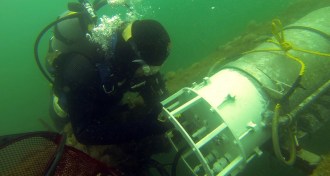
-
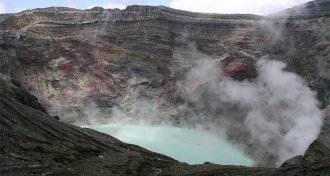 Earth
EarthThere’s a new way to stop an earthquake: put a volcano in its path
An earthquake rupturing along a fault in Japan was blockaded by the magma chamber below the Mount Aso volcano, researchers propose.
-
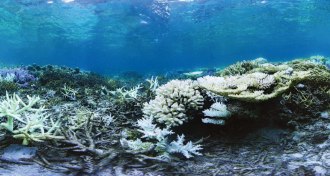 Oceans
OceansReef rehab could help threatened corals make a comeback
Reefs are under threat from rising ocean temperatures. Directed spawning, microfragmenting and selective breeding may help.
-
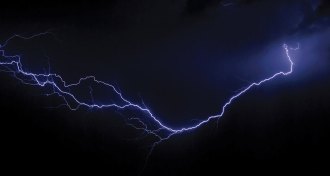 Climate
ClimateExtreme lightning events set records
A lightning flash stretching 321 kilometers across and one that lasted 7.74 seconds have been named the most extreme events on record, thanks to a new rule change.
-
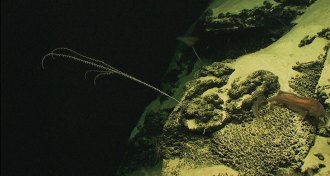 Life
LifeOcean archaea more vulnerable to deep-sea viruses than bacteria
Deep-sea viruses kill archaea disproportionately more often than bacteria, a killing spree with important impacts on the global carbon cycle.
-
 Health & Medicine
Health & Medicine50 years ago, noise was a nuisance (it still is)
In 1966, scientists warned of the physical and psychological dangers of a louder world.
-
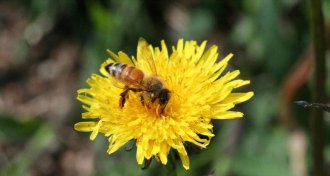 Animals
AnimalsBees take longer to learn floral odors polluted by vehicle fumes
Car and truck exhaust mingling with a floral scent can slow down the important process of honeybees learning the fragrance of a flower.
By Susan Milius -
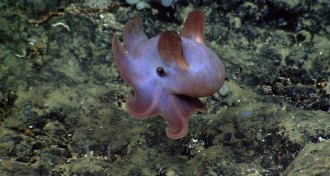 Oceans
OceansAtlantic monument is home to unique and varied creatures
A region of ocean off the coast of Cape Cod has become the first U.S. marine national monument in the Atlantic Ocean.
-
 Earth
EarthSeismologists surprised by deep California quakes
Small earthquakes detected along the Newport-Inglewood Fault originate from deeper underground than once thought possible.
-
 Science & Society
Science & SocietySometimes failure is the springboard to success
Editor in chief Eva Emerson discusses scientific discoveries that resulted from failures large and small.
By Eva Emerson -
 Physics
PhysicsA metallic odyssey, what’s causing sunspots and more reader feedback
Metallic hydrogen, sunspot formation, salty desalination leftovers and more in reader feedback.